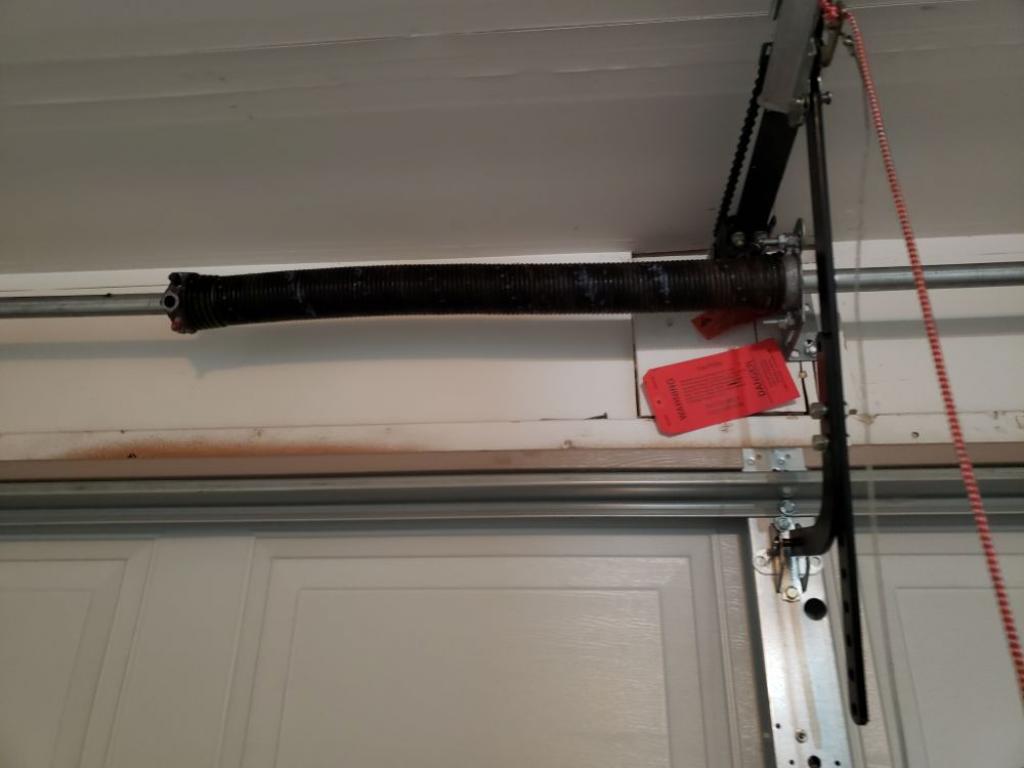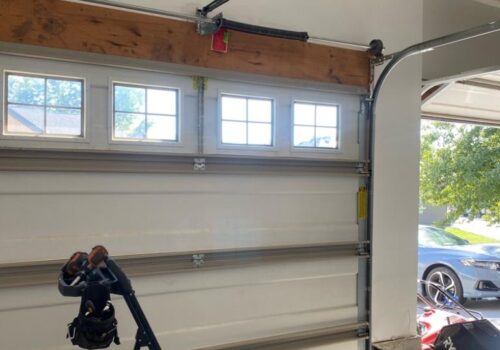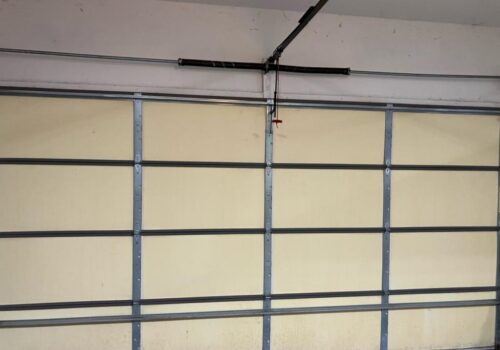A client in Palmyra, NE, recently called Titan Garage Doors NE for a garage door spring replacement after their garage door crashed due to a broken torsion spring. We scheduled the repair on the same day and immediately replaced the broken garage door spring with one with a higher cycle rating. In addition, we performed some safety and performance tests before calling it a day. The client was happy with the repair because it was completed in no time — they even had time to go on their weekend trip that day!
When a garage door spring snaps, it will usually make a loud noise, like a firecracker exploding. You will know it is broken if you see it separated from the rest of the spring assembly. These springs do most of the work required to lift your garage door. If the torsion spring is damaged, the door will not open. Lifting the door without the spring would be unsafe and may damage the garage door opener. Additionally, manual lifting of the door is not recommended, as garage doors can weigh up to 250 lbs without the spring.
If your garage door spring breaks, it is best to contact Titan Garage Doors NE for help. It can be very dangerous for someone who is not a professional to try and replace the springs as the garage door is constantly under a lot of tension and weight. Furthermore, a professional knows which replacement springs would be best for your garage door.
Causes of Garage Door Springs Failure
Although most homeowners would like their garage components to last forever, springs have a limited lifespan. Many factors determine the lifespan of a spring. The most important factor is the quality of the spring. Cheaper garage doors often have torsion springs of shorter lifespans and extension springs of poorer quality. Cheap springs only have a 7,500 cycle life and must be replaced every three to five years. Springs of higher quality may survive for 15 years and 10,000 cycles. Another important factor is how often the spring is used. If you only use your garage once a day, you can expect your garage door spring to break 14 years after it was first installed. The number quickly decreases the more frequently you use the garage door.
Factors That Influence How Long Your Springs Last
Wear and tear: The average garage door sees much use, with most homeowners using it at least twice daily. If you frequently run errands or your household uses the garage often, that number can go up significantly. All that usage takes a toll, and your garage door will show signs of wear and tear over time.
Rust: Rust is one of the main reasons why garage door springs have a shorter lifespan. As rust accumulates, it creates more friction on the coil, weakening its structure. To help extend the life of your springs, apply WD-40 to them three or four times a year. It will protect them from rust and keep the coil lubricated.
Inadequate maintenance: If you want your garage door to last, you must take care of it. That means inspecting all the moving parts and lubricating them as needed. You should also check the balance of your garage door at least once a year. Good springs keep the door in place, while worn-out springs let it sag or fall.
Garage Door Repair Near Me
It can be very frustrating when a garage door stops working properly and ruins your plans for the day. If this happens to you, do not worry—Titan Garage Doors NE is here to help. We have years of experience in this field and can quickly identify and fix problems, minimizing downtime and stress levels. So if you need any garage door repair or other garage door services, call us today.






Comments: